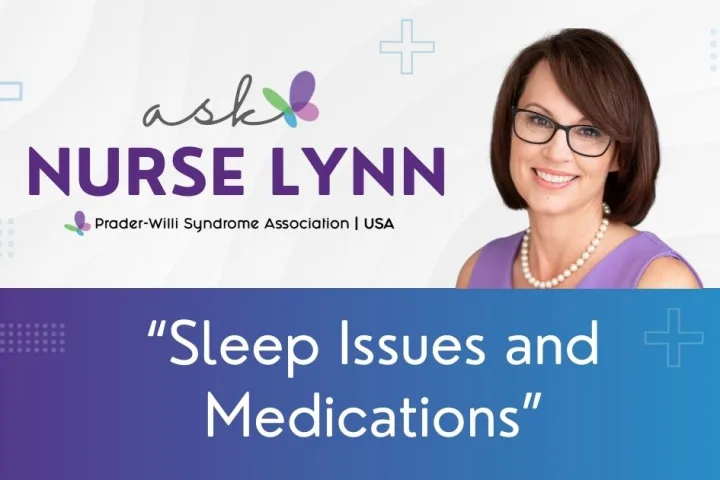Question:
Female, 54 years old, unknown subtype
My sister was recently in the hospital for CHF, low O2 and heart rate, and an obstruction in her stomach. She was placed on a NG tube for several days to allow her stomach to decompress. She is now at a rehab center. She is battling huge blisters on her calves for edema, and is crying in pain when she tries to have a BM. The blockage in her stomach was a BM at the hospital- they had to manually help her get it out. They have her on stool softeners, but it isn’t getting better or easier for her. She bedridden, so I’m sure the position isn’t helping either. Suggestions?
Nurse Lynn’s Response:
I’m so sorry your sister is going through this. It sounds like an incredibly difficult recovery with several compounding issues:
Constipation: Stool softeners alone may not be enough. Adding an osmotic laxative like Miralax can help draw water into the bowel. If needed, a stimulant laxative like senna or bisacodyl can be used short-term to help trigger movement. Gentle abdominal massage, hydration, and passive movement can also support digestion.
Diet: Diet plays a key role in both constipation and CHF. If possible, request a meeting with the dietitian to review her meals and explore adjustments that support bowel function and fluid management.
Edema in the legs, particularly when severe, can lead to blister formation and fluid leakage, known as weeping edema, due to the increased pressure and fluid buildup within the tissues. This is often associated with CHF where the heart struggles to pump blood effectively, leading to a backup of fluid, particularly in the lower extremities. Interventions like keeping the legs elevated, diuretic medications, compression wrapping and monitoring for infection and wound care if the blisters have started weeping are common and require daily monitoring.
Advocating for frequent communication and care team meetings will be helpful throughout this process. Understanding the nursing, therapy and dietary goals and interventions will be helpful for you to understand progress and how best to support your sister.
Do you have a non-emergency medical question for Nurse Lynn? Submit your question here:
Share this!





 Perry A. Zirkel has written more than 1,500 publications on various aspects of school law, with an emphasis on legal issues in special education. He writes a regular column for NAESP’s Principal magazine and NASP’s Communiqué newsletter, and he did so previously for Phi Delta Kappan and Teaching Exceptional Children.
Perry A. Zirkel has written more than 1,500 publications on various aspects of school law, with an emphasis on legal issues in special education. He writes a regular column for NAESP’s Principal magazine and NASP’s Communiqué newsletter, and he did so previously for Phi Delta Kappan and Teaching Exceptional Children. Jennifer Bolander has been serving as a Special Education Specialist for PWSA (USA) since October of 2015. She is a graduate of John Carroll University and lives in Ohio with her husband Brad and daughters Kate (17), and Sophia (13) who was born with PWS.
Jennifer Bolander has been serving as a Special Education Specialist for PWSA (USA) since October of 2015. She is a graduate of John Carroll University and lives in Ohio with her husband Brad and daughters Kate (17), and Sophia (13) who was born with PWS. Dr. Amy McTighe is the PWS Program Manager and Inpatient Teacher at the Center for Prader-Willi Syndrome at the Children’s Institute of Pittsburgh. She graduated from Duquesne University receiving her Bachelor’s and Master’s degree in Education with a focus on elementary education, special education, and language arts.
Dr. Amy McTighe is the PWS Program Manager and Inpatient Teacher at the Center for Prader-Willi Syndrome at the Children’s Institute of Pittsburgh. She graduated from Duquesne University receiving her Bachelor’s and Master’s degree in Education with a focus on elementary education, special education, and language arts. Evan has worked with the Prader-Willi Syndrome Association (USA) since 2007 primarily as a Crisis Intervention and Family Support Counselor. Evans works with parents and schools to foster strong collaborative relationships and appropriate educational environments for students with PWS.
Evan has worked with the Prader-Willi Syndrome Association (USA) since 2007 primarily as a Crisis Intervention and Family Support Counselor. Evans works with parents and schools to foster strong collaborative relationships and appropriate educational environments for students with PWS. Staci Zimmerman works for Prader-Willi Syndrome Association of Colorado as an Individualized Education Program (IEP) consultant. Staci collaborates with the PWS multi-disciplinary clinic at the Children’s Hospital in Denver supporting families and school districts around the United States with their child’s Individual Educational Plan.
Staci Zimmerman works for Prader-Willi Syndrome Association of Colorado as an Individualized Education Program (IEP) consultant. Staci collaborates with the PWS multi-disciplinary clinic at the Children’s Hospital in Denver supporting families and school districts around the United States with their child’s Individual Educational Plan. Founded in 2001, SDLC is a non-profit legal services organization dedicated to protecting and advancing the legal rights of people with disabilities throughout the South. It partners with the Southern Poverty Law Center, Protection and Advocacy (P&A) programs, Legal Services Corporations (LSC) and disability organizations on major, systemic disability rights issues involving the Individuals with Disabilities Education Act (IDEA), Americans with Disabilities Act (ADA), and the federal Medicaid Act. Recently in November 2014, Jim retired.
Founded in 2001, SDLC is a non-profit legal services organization dedicated to protecting and advancing the legal rights of people with disabilities throughout the South. It partners with the Southern Poverty Law Center, Protection and Advocacy (P&A) programs, Legal Services Corporations (LSC) and disability organizations on major, systemic disability rights issues involving the Individuals with Disabilities Education Act (IDEA), Americans with Disabilities Act (ADA), and the federal Medicaid Act. Recently in November 2014, Jim retired.